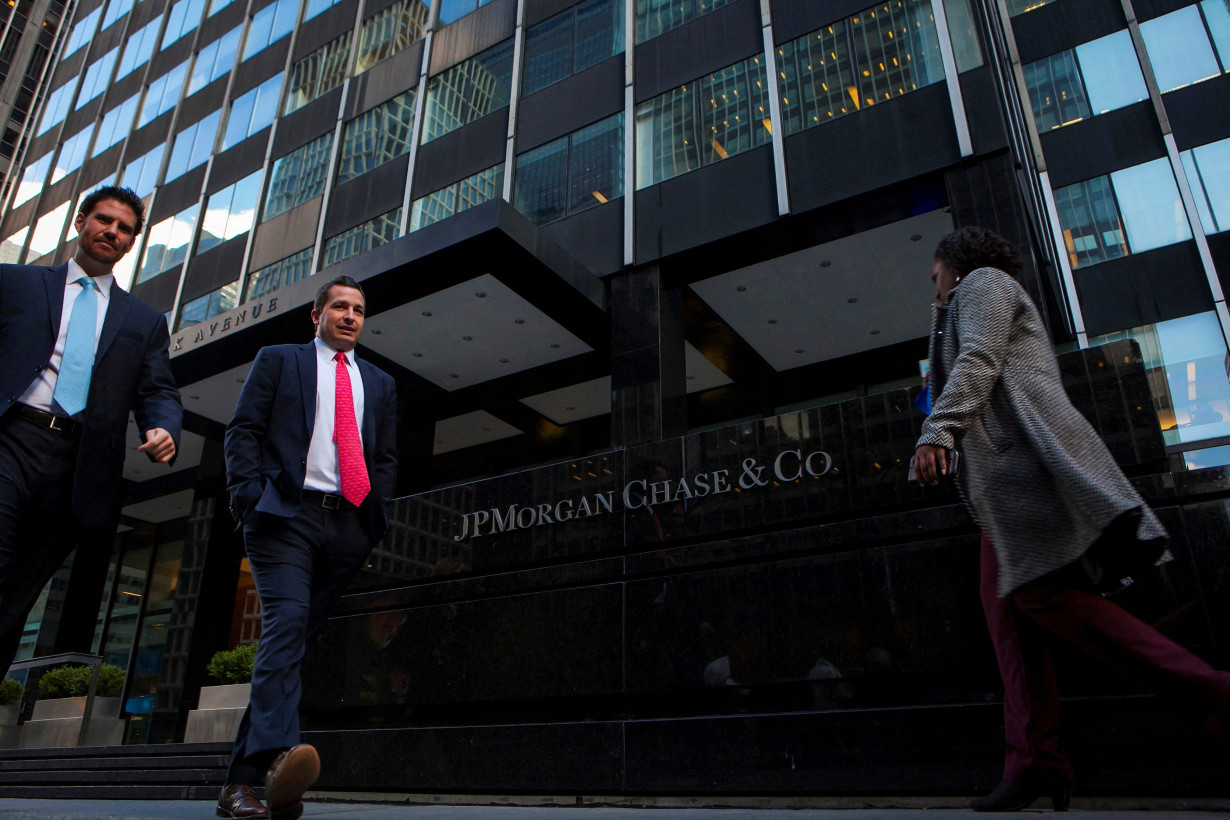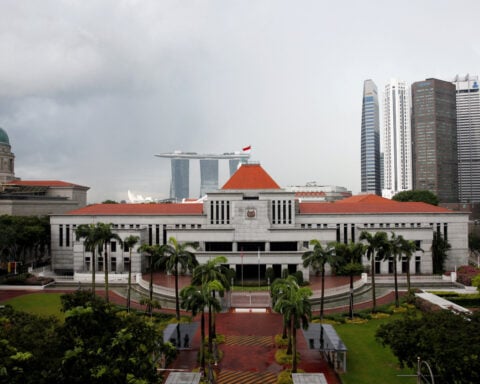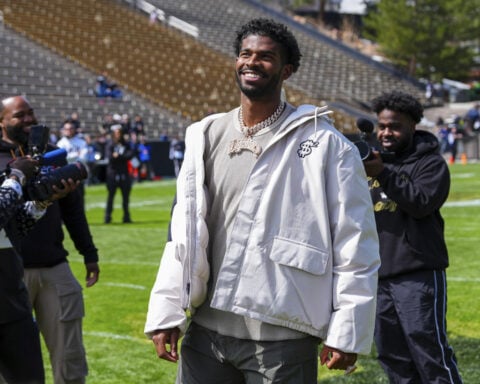NEW YORK (Reuters) - As U.S. lenders begin to report earnings this week, investors' focus will likely shift from profits to bank bosses' remarks on the economy after President Donald Trump unveiled steep tariffs and triggered a market selloff.
Mike Mayo, an analyst at Wells Fargo, said the largest effect of the tariffs in the coming quarters "will be higher reserves for loan losses as the odds of recession rise."
Banks will probably set aside billions of dollars to cover potential loan defaults over the coming quarters. Loan losses will probably jump this year because recently updated accounting rules require lenders to account for losses over the full terms of the loans.
JPMorgan Chase, Citigroup and Wells Fargo will kick off results on Friday. JPMorgan's CEO Jamie Dimon has warned that trade wars could have lasting negative consequences, including inflation and recession.
"Banks are a reflection of the economy -- if the economy worsens, their results will follow," said Stephen Biggar, director of financial institutions at Argus Research.
On top of more reserves to cover losses on existing loans, Biggar expects banks to curb lending as they see higher risks.
Bank executives are also likely to be quizzed during earnings calls about the market selloff that has wiped trillions of dollars off global stock indexes. Bank stocks were among the hardest hit, after rallying earlier this year on optimism that dealmaking would recover.
FEES MAY FALL
The KBW bank index lost 15% between April 2, when the tariffs were announced, and April 7 -- the largest drop since the regional banking crisis of 2023. The benchmark S&P 500 index lost 10.7% in the same period.
The first quarter rebound in investment banking was short-lived, as volatility rapidly scuttled acquisitions and IPOs.
"Investment banking fees are expected to fall as capital markets activity and M&A typically stall during high volatility periods," said Jason Goldberg, an analyst at Barclays.
The impact of the market turmoil since the tariff announcements is still being analyzed. Losses in equity portfolios are expected to weigh on banks' wealth and asset management units, which make money on fees, but their trading businesses could benefit from increased activity.
As in any market selloff, there always are unforeseen consequences that will be dealt with, Mayo said.
"Banks have now another chance to prove that regulation since the financial crisis strengthened their balance sheets, and they are going into the market turmoil with high capital and liquidity," he added.
After the tariffs were announced, Morgan Stanley analyst Betsy Grasek changed her recommendation for bank stocks, including the large and mid-sized ones, to "in line" from "attractive."
"Clearly, the group has pulled back this year with stocks down a median 5% in 1Q25, driven by tariff-driven delays to the capital markets pipeline and a slower GDP growth outlook," she wrote in a note.
Raymond James analyst David Long downgraded target prices for 18 regional banks last week, citing concerns about the expected economic slowdown.
"We would not be surprised to see episodes of reduced financial guidance, leading to negative revisions to EPS estimates during the April reporting season," Long wrote.
Bank Q1 2025 earnings per Q1 2024 actual EPS
share estimates
JPMorgan $4.61 $4.44
Bank of America $0.82 $0.76
Citigroup $1.86 $1.58
Wells Fargo $1.24 $1.20
Goldman Sachs $12.35 $11.58
Morgan Stanley $2.22 $2.02
(Reporting by Tatiana Bautzer; additional reporting by Basil Arasu Kannagi and Saeed Azhar; editing by Lananh Nguyen and Bernadette Baum)

 Trump has begun another trade war. Here's a timeline of how we got here
Trump has begun another trade war. Here's a timeline of how we got here
 Canada's leader laments lost friendship with US in town that sheltered stranded Americans after 9/11
Canada's leader laments lost friendship with US in town that sheltered stranded Americans after 9/11
 Chinese EV giant BYD's fourth-quarter profit leaps 73%
Chinese EV giant BYD's fourth-quarter profit leaps 73%
 You're an American in another land? Prepare to talk about the why and how of Trump 2.0
You're an American in another land? Prepare to talk about the why and how of Trump 2.0
 Chalk talk: Star power, top teams and No. 5 seeds headline the women's March Madness Sweet 16
Chalk talk: Star power, top teams and No. 5 seeds headline the women's March Madness Sweet 16
 Purdue returns to Sweet 16 with 76-62 win over McNeese in March Madness
Purdue returns to Sweet 16 with 76-62 win over McNeese in March Madness







